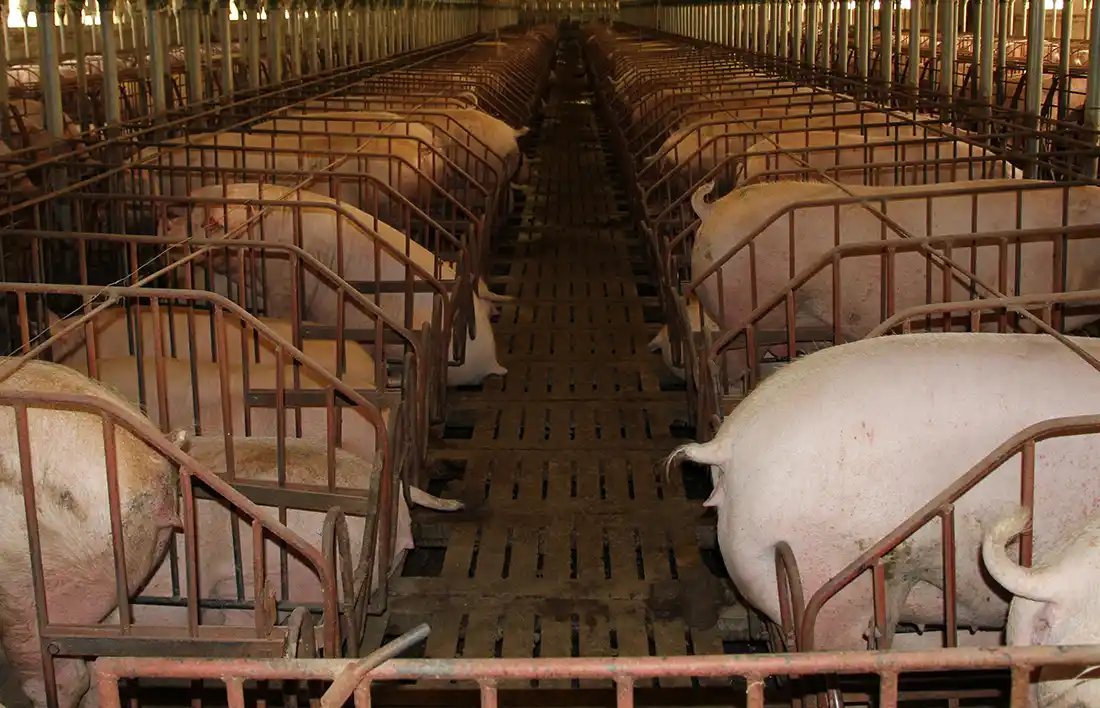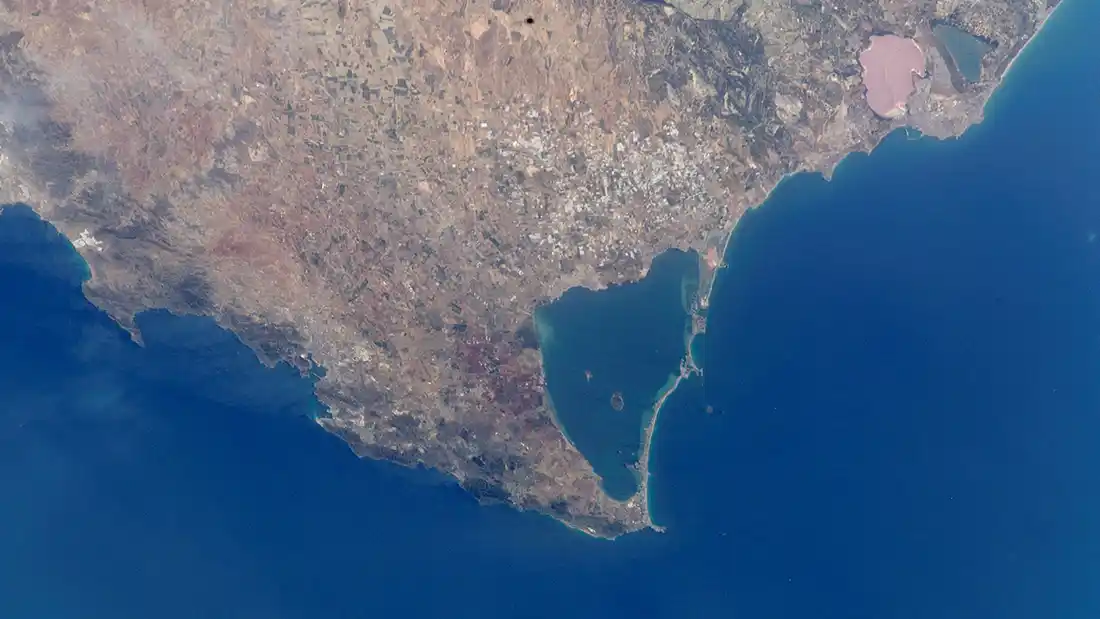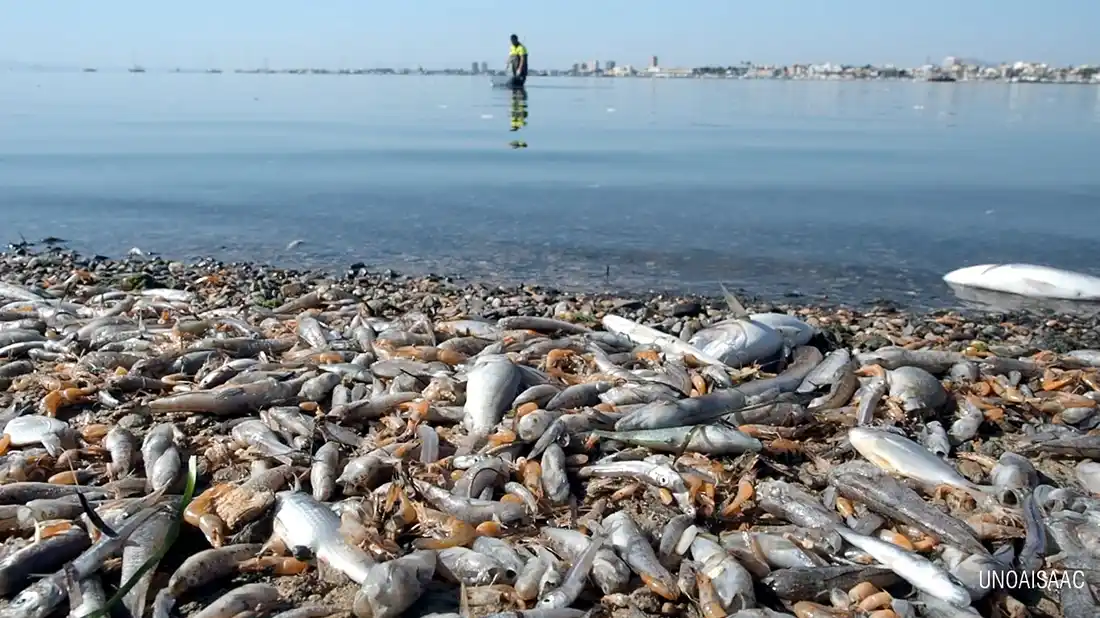How pig farm slurry is destroying the Mar Menor lagoon

The Mar Menor lagoon in Spain’s Murcia region is one of Europe’s largest saltwater lagoons and a unique natural habitat for many species of fish, birds and plants. It is also a popular tourist destination, attracting millions of visitors every year who enjoy its warm waters, sandy beaches and scenic views.

However, in recent years, the lagoon has been suffering from a severe environmental crisis that threatens its biodiversity and its future. The main cause of this crisis is the excessive amount of nitrogen that enters the lagoon from agricultural runoffs, especially from pig farm slurry.
Pig farm slurry is the liquid waste that is produced by intensive pig farming. It contains faeces, urine, water and other substances, such as antibiotics and hormones. Pig farm slurry is usually stored in open ponds or pits that are supposed to be waterproof and enclosed. However, many of these facilities do not comply with the regulations and leak or spill their contents into the soil and groundwater.
According to a report by Spain’s environment ministry, pig farm slurry could be responsible for 17 per cent of nitrogen in the Mar Menor aquifer. Nitrogen is an essential nutrient for plants, but when it reaches high concentrations in water bodies, it can cause eutrophication. Eutrophication is a process where excess nutrients stimulate the growth of algae and other microorganisms that consume oxygen and create dead zones where no other life can survive.
This is what happened in the Mar Menor lagoon in August 2021, when more than five tonnes of dead fish washed up on its shores. The fish had suffocated due to lack of oxygen caused by massive algal blooms triggered by nitrogen pollution. The lagoon also turned cloudy and smelly, losing its natural beauty and appeal.

The environmental degradation resulting from pig farm slurry presents an environmental injustice problem, since the communities around the lagoon do not receive any benefit from the pig farming operations, but instead suffer negative consequences such as pollution and health problems. Pig farm slurry can carry pathogens, such as bacteria (often antibiotic resistant), and heavy metals that can be toxic when ingested. It can also affect air quality by emitting ammonia and greenhouse gases that contribute to global warming.
The solution to this problem is to reduce or eliminate animal consumption altogether. By adopting a vegan diet, we can reduce the demand for animal products, such as pig meat, that fuels intensive pig farming. A vegan diet has many benefits for our health, our environment and our ethics. It can lower our risk of chronic diseases such as heart disease, diabetes and cancer; it can save water, land and energy resources; it can prevent animal suffering and slaughter and it can foster compassion and respect for all living beings.
Being vegan can solve this problem and save the world by reducing our ecological footprint and our impact on nature. By choosing veganism, we can protect ecosystems like the Mar Menor lagoon that are vital for biodiversity conservation and human wellbeing.
References:
- https://www.gov.uk/government/publications/slurry-stores-on-permitted-pig-and-poultry-farms-with-less-than-1-dry-matter/slurry-stores-on-permitted-pig-and-poultry-farms-with-less-than-1-dry-matter
- https://www.theguardian.com/environment/2021/oct/13/toilet-of-europe-spains-pig-farms-blamed-for-mass-fish-die-offs
- https://en.wikipedia.org/wiki/Environmental_impact_of_pig_farming
- https://www.pigprogress.net/world-of-pigs/6-on-farm-environmental-mitigation-strategies/




